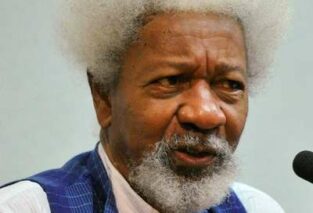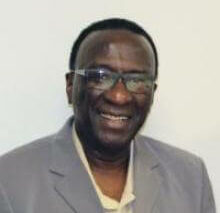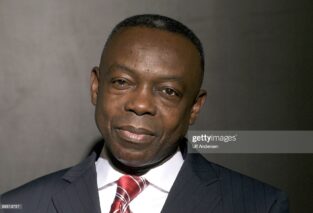Many retired Dutch men and women, experts in various fields, have joined an association called PUM, with a challenging objective: defeat poverty through work. It is “geared towards fighting poverty and encouraging sustainable development in social free-market economies around the world,” especially the struggling economies of Africa, Asia and Latin America. 
Aart Jan van Ginkel is one such Dutchman. He worked in Holland for thirty nine years before joining PUM and has travelled to Indonesia, Senegal, Morocco, Cameroon and will soon be heading for Panama, in Central America. I met him in Bamenda recently. Here’s an excerpt from our conversation.
Aart, please tell me what your organisation is all about?
PUM stands for Netherlands Senior Experts in The Hague. It was created about twenty five years ago and now has about 3500 volunteer experts in different fields of development. These experts make about 2000 visits a year to the various projects PUM is sponsoring around the world.
How do you select projects for sponsorship?
PUM has local representatives in many countries around the world. In Cameroon, we have representatives in Yaoundé, Douala and Limbe. Anyone with a project can contact our local representation that will then send an expert to assess the project in question and determine if it qualifies for PUM assistance. There are some basic rules a project must fulfill to qualify for assistance. Firstly, it must have been in existence for some years so we can be sure it can survive. It should not be too big because then we would expect a big company to have enough money to take care of its own problems. We concentrate on small and medium-size enterprises (SME) in the private sector of the economy. We do not support government-sponsored projects.
What organisation are you working with here in Bamenda?
I am working with a company called the Aleri Integrated Farms (AIF). It’s a private family business that is active in the agricultural sector. Its owners operate palm plantations and other agricultural products, like fruits and vegetables, on about two hundred hectares of agricultural land. They produce palm oil, soap and cake for animal feed.
For how long have you been with them?
I came to Bamenda two weeks ago. Mine is a short visit during which I visit the farms, analyse the activities and prepare a report that will offer a business strategic plan on how to develop the company over the coming years, and improve the project further. It is a developing organisation with very motivated people but it is still fairly young, just about three years old, and it needs a good business plan that can guide the owners to a better future.
Are you an agronomist?
Yes, I specialise in agriculture, particularly in animal husbandry, chicken, and wild fish farming projects. I was in Senegal for a tuna fishing project and in Morocco for a fish procession plant. I have been many times in Indonesia for fishing and maize farming projects. In September, I plan to go to Central America, precisely to Panama, for a combined fish and chicken processing plant.
Outside agriculture, what other sector of the economy is PUM active in here in Cameroon?
We are active in just about every field you can think of. I went with some people to meet the mayor of Santa the other day to visit some hospitals and primary and secondary schools in his area that could qualify for PUM assistance. We also talked about printing activities. PUM has experts in many fields. When a PUM expert visits a project and is satisfied that it can qualify for PUM assistance, there is always the possibility that PUM can invite the owner for continual technical training in the Netherlands.
If I had a project which I think PUM could sponsor, what should I do?
The owner of a project seeking assistance should begin by visiting the PUM website at www.pum.nl for information about their country, in this case, Cameroon. The website gives the names, addresses and contact numbers of PUM local representatives, who they can then contact for further information. For a PUM expert to visit them, they must clearly define a problem they are facing so PUM can dispatch the right expert, if it deems it worthwhile. PUM has as objective to reduce poverty and increase assistance to schools, provide water for irrigation and drinking water and a better health care that is accessible to everybody. We, the PUM volunteers, are happy to assist developing economies to bring prosperity to the whole world.


